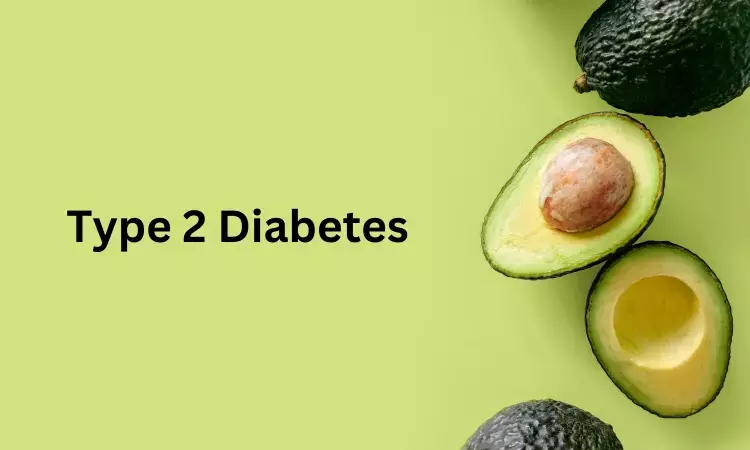- Home
- Medical news & Guidelines
- Anesthesiology
- Cardiology and CTVS
- Critical Care
- Dentistry
- Dermatology
- Diabetes and Endocrinology
- ENT
- Gastroenterology
- Medicine
- Nephrology
- Neurology
- Obstretics-Gynaecology
- Oncology
- Ophthalmology
- Orthopaedics
- Pediatrics-Neonatology
- Psychiatry
- Pulmonology
- Radiology
- Surgery
- Urology
- Laboratory Medicine
- Diet
- Nursing
- Paramedical
- Physiotherapy
- Health news
- Fact Check
- Bone Health Fact Check
- Brain Health Fact Check
- Cancer Related Fact Check
- Child Care Fact Check
- Dental and oral health fact check
- Diabetes and metabolic health fact check
- Diet and Nutrition Fact Check
- Eye and ENT Care Fact Check
- Fitness fact check
- Gut health fact check
- Heart health fact check
- Kidney health fact check
- Medical education fact check
- Men's health fact check
- Respiratory fact check
- Skin and hair care fact check
- Vaccine and Immunization fact check
- Women's health fact check
- AYUSH
- State News
- Andaman and Nicobar Islands
- Andhra Pradesh
- Arunachal Pradesh
- Assam
- Bihar
- Chandigarh
- Chattisgarh
- Dadra and Nagar Haveli
- Daman and Diu
- Delhi
- Goa
- Gujarat
- Haryana
- Himachal Pradesh
- Jammu & Kashmir
- Jharkhand
- Karnataka
- Kerala
- Ladakh
- Lakshadweep
- Madhya Pradesh
- Maharashtra
- Manipur
- Meghalaya
- Mizoram
- Nagaland
- Odisha
- Puducherry
- Punjab
- Rajasthan
- Sikkim
- Tamil Nadu
- Telangana
- Tripura
- Uttar Pradesh
- Uttrakhand
- West Bengal
- Medical Education
- Industry
Newly found metabolic biomarker of Avacado may lower fasting glucose, insulin and incidence of T2D

The avocado, also known as Persea americana, is a powerhouse superfood. Avocados are well known as they contain healthy fats, anti-aging, disease-fighting antioxidants, and nearly 20 vitamins and minerals. Studies report regular avocado eaters have higher intakes of fiber, vitamins E and K, magnesium, and potassium than those who don't eat avocados.
Avocados may significantly improve blood sugar control for some people, though not everyone, suggests a new study in The Journal of Nutrition. The study observed that for people with a newly identified metabolic biomarker of avocado intake, there was a strong association with decreased fasting glucose and fasting insulin, and a lower incidence of type 2 diabetes. The study of body metabolites, or metabolomics, along with the study of one’s microbiome, may lead to a new era of personalized nutrition was pointed out by the study.
Researchers studied baseline data from 6224 multi-ethnic older adults (62% female) included self-reported avocado intake, fasting glucose and insulin, and untargeted plasma proton nuclear magnetic resonance metabolomic features. Metabolomic data were available for a randomly selected subset for 3438. Subsequently, incident type 2 diabetes (T2D) was assessed over an ∼18 y follow-up period. A metabolome-wide association study of avocado consumption status (consumer compared with nonconsumer) was conducted, and the relationship of these features with glycemia via cross-sectional associations with fasting insulin and glucose and longitudinal associations with incident T2D was examined.
The key findings of the study are
• Three highly-correlated spectral features were associated with avocado intake at metabolome-wide significance levels (P < 5.3 ∗ 10–7) and combined into a single biomarker.
• The researchers did not find evidence that these features were additionally associated with overall dietary quality, nor with any of 47 other food groups (all P > 0.001), supporting their suitability as a biomarker of avocado intake.
• Avocado intake showed a modest association only with lower fasting insulin (β = –0.07 +/- 0.03, P = 0.03), an association that was attenuated to nonsignificance when additionally controlling for body mass index (kg/m2).
• However, the biomarker of avocado intake was strongly associated with lower fasting glucose (β = –0.22 +/- 0.02, P < 2.0 ∗ 10–16), lower fasting insulin (β = –0.17 +/- 0.02, P < 2.0 ∗ 10–16), and a lower incidence of T2D (hazard ratio: 0.68; 0.63–074, P < 2.0 ∗ 10–16), even when adjusting for BMI.
Researchers concuded that “Highly significant associations between glycemia and avocado-related metabolomic features, which serve as biomarkers of the physiological impact of dietary intake after digestion and absorption, compared to modest relationships between glycemia and avocado consumption, highlights the importance of considering individual differences in metabolism when considering diet-health relationships.”
Reference: Alexis C. Wood, Mark O. Goodarzi, Mackenzie K. Senn, Meghana D. Gadgil, Goncalo Graca, et al ; Associations between Metabolomic Biomarkers of Avocado Intake and Glycemia in the Multi-Ethnic Study of Atherosclerosis,; The Journal of Nutrition,Volume 153, Issue 10, 2023,DOI: https://doi.org/10.1016/j.tjnut.2023.07.013.
MSc. Neuroscience
Niveditha Subramani a MSc. Neuroscience (Faculty of Medicine) graduate from University of Madras, Chennai. Ambitious in Neuro research having worked in motor diseases and neuron apoptosis is interested in more of new upcoming research and their advancement in field of medicine. She has an engrossed skill towards writing and her roles at Medical dialogue include Sr. Content writer. Her news covers new discoveries and updates in field of medicine. She can be reached at editorial@medicaldialogues.in
Dr Kamal Kant Kohli-MBBS, DTCD- a chest specialist with more than 30 years of practice and a flair for writing clinical articles, Dr Kamal Kant Kohli joined Medical Dialogues as a Chief Editor of Medical News. Besides writing articles, as an editor, he proofreads and verifies all the medical content published on Medical Dialogues including those coming from journals, studies,medical conferences,guidelines etc. Email: drkohli@medicaldialogues.in. Contact no. 011-43720751


